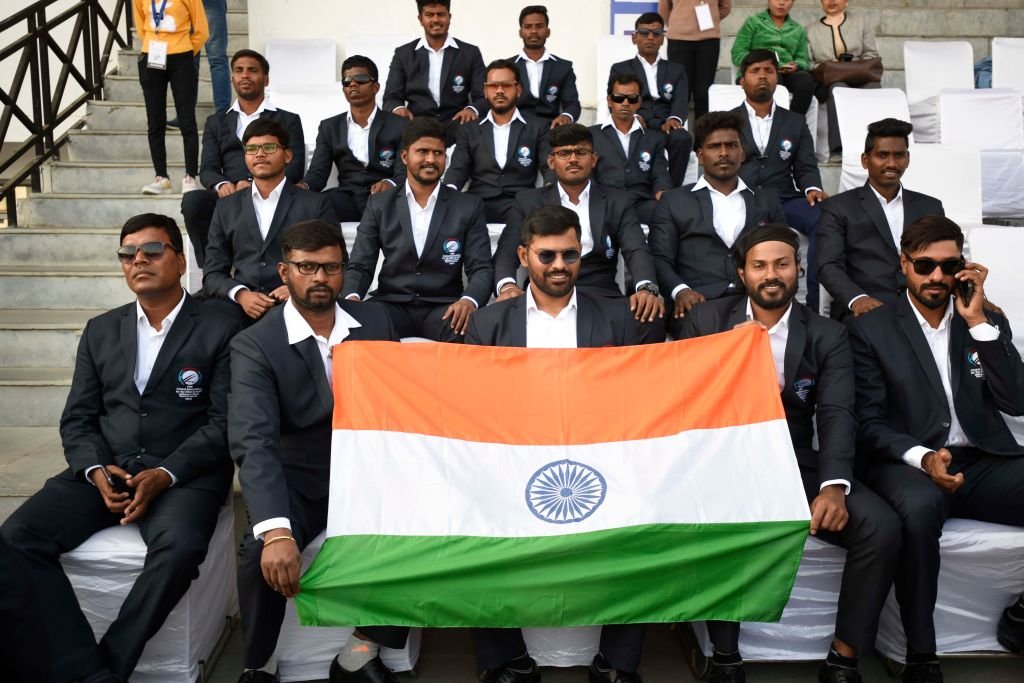
The Indian blind cricket team will not participate in the 2024 T20 World Cup, scheduled to take place in Pakistan from November 23 to December 3. This decision follows the Indian government’s denial of travel clearance, citing security concerns in the neighboring country. Despite securing a No Objection Certificate (NOC) from the Sports Ministry, the final approval from the Ministry of External Affairs (MEA) was withheld, leaving the team unable to attend the event.
The Cricket Association for the Blind in India (CABI) voiced its disappointment, criticizing the prolonged uncertainty leading up to the decision. According to CABI General Secretary Shailendra Yadav, the team had been prepared to cross the Wagah border on November 20 but had to abandon plans due to the lack of an official go-ahead. Yadav expressed frustration, noting that a timely decision from the authorities could have prevented the logistical and emotional toll on the players and organizers.
Yadav also pointed out a lack of consistency in how such situations are handled. While security was cited as the primary concern, he argued that other international cricket teams often face similar risks and still find ways to ensure participation. The Indian team’s inability to compete raises questions about how risks are evaluated and whether blind athletes are being treated equitably compared to their able-bodied counterparts.
The Blind T20 World Cup is a highly significant tournament for visually impaired cricketers worldwide. India has been a dominant force in this competition, winning all three previous editions held in 2012, 2017, and 2022. In the last World Cup, India defeated Bangladesh in the final by a staggering 120 runs, demonstrating their prowess in the sport. Their absence this year will undoubtedly impact the tournament’s competitiveness and spirit.
Despite India’s withdrawal, the Pakistan Blind Cricket Council (PBCC) has stated that the tournament will proceed as planned. Teams from Australia, England, Sri Lanka, and other countries are set to participate, with the PBCC expressing regret over India’s decision but emphasizing its commitment to the event’s success. PBCC Chairman Syed Sultan Shah remarked that all necessary arrangements, including visas for the Indian team, had been made, and the onus was on the Indian authorities for the missed opportunity.
The decision not to send the team also reflects broader geopolitical tensions between India and Pakistan, which often spill over into the world of sports. In recent years, India’s national cricket team has avoided traveling to Pakistan for major events. For instance, India declined to participate in the 2023 Asia Cup held in Pakistan and is unlikely to compete in the ICC Champions Trophy scheduled for 2025. These actions underscore the complex relationship between the two countries, where diplomatic standoffs frequently disrupt sporting engagements.
For the Indian blind cricket team, this is not the first time political considerations have impacted their participation. In 2018, the Indian government similarly denied clearance for a bilateral series in Pakistan. Conversely, the Pakistan blind cricket team boycotted the 2023 World Cup hosted in India, citing visa issues. These recurring instances highlight how athletes with disabilities are often disproportionately affected by political decisions, depriving them of opportunities to showcase their talents on the global stage.
The situation also raises important questions about the role of sports as a unifying force versus its use as a tool for political leverage. Sports, particularly cricket, have long been viewed as a bridge for fostering goodwill between India and Pakistan. Yet, events like this reveal the fragility of such efforts when national security and political agendas take precedence.
For the athletes involved, the emotional impact of this decision cannot be overstated. Many players have worked tirelessly to prepare for the tournament, only to see their dreams dashed at the last moment. The team now turns its attention to domestic tournaments and preparations for future international opportunities, but the disappointment of missing out on a World Cup will linger.
In the face of these challenges, the resilience of the Indian blind cricket team serves as an inspiration. Their story underscores the need for better planning and clearer communication in handling international sports events involving disabled athletes. It also highlights the importance of prioritizing the interests of players, who dedicate their lives to representing their countries on the world stage.

